The Present Past
Tiffany Tsao • 28 October 2022
Welcome to our last newsletter – for the year and until further notice. Due to a hiatus in funding, we’re going into hibernation until conditions permit our return. But fear not; we fully plan on resuming activity. And when we do, we will return with the vigour of a thawed wood frog springing out of an Arctic winter deep freeze. (Consider also: the indestructible tardigrade.)
In the meantime, enjoy this final-for-now issue on the presence of the past. We begin with Lauren Burrow and Tristen Harwood’s essay on colonialism being alive and present and sneakily pretending to be decolonisation. Next, Anna Louise Richardson keeps a record of her encounters with wild birds and the strong sense of her late mother’s presence in each interaction.
Using archived correspondence, Darryl Kickett pieces together the disturbing details of his grandfather’s treatment and death despite widespread recognition of his valuable services. What happened to his grandfather in 1904 is still going on today.
Jessica Friedmann grieves for the Jewishness her family abandoned in order to take advantage of the privileges of whiteness, and what this means in terms of what she’ll pass on to her young son.
In a 2010 essay, Azhar Abidi journeys to Chitral in Pakistan near the border with Afghanistan and finds a land thickly layered with pasts – wars, occupations, his own childhood and previous visits.
From the first issue of Zou Mat Je (做乜嘢), a multilingual zine by Cantonese-speaking writers and artists, Miriam Wei Wei Lo shares pages from her Cantonese grandmother’s autograph book.
Lastly, what better way to wrap up this first run of The Circular than a behind-the-scenes glimpse into Kim Lam’s creation of a zine about the canine afterlife lying beyond the Rainbow Bridge?
This end is not the end.
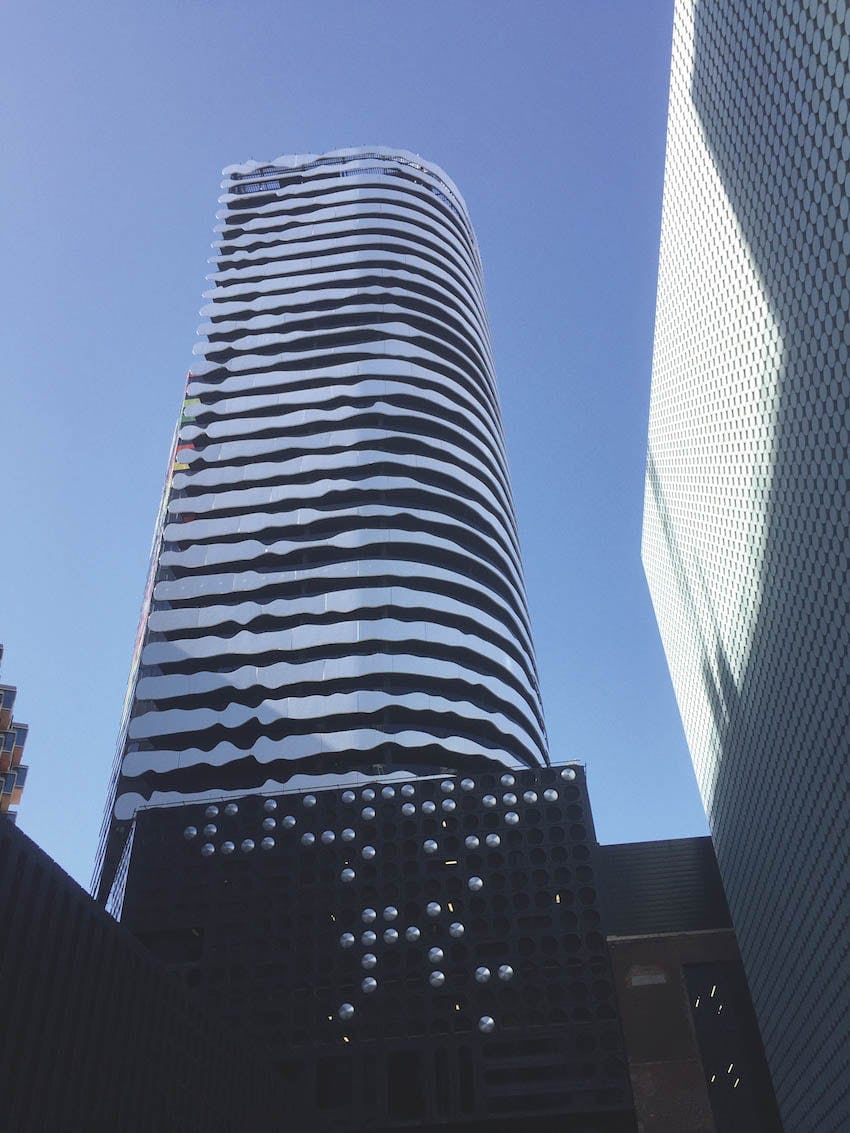
Forgetting Architecture and the new Aboriginal Kitsch
Lauren Burrow & Tristen Harwood, un Magazine, May 2018
Craftier than producers of earlier kitsch, producers of new Aboriginal kitsch position themselves as socially minded, decolonising agents. New Aboriginal kitsch mimics characteristics of decolonisation in an attempt to fool people into celebrating colonising forces, by making them think they are celebrating decolonising forces. It dislocates the ethical component of the formative action from the aesthetic, reaching for pure affect.
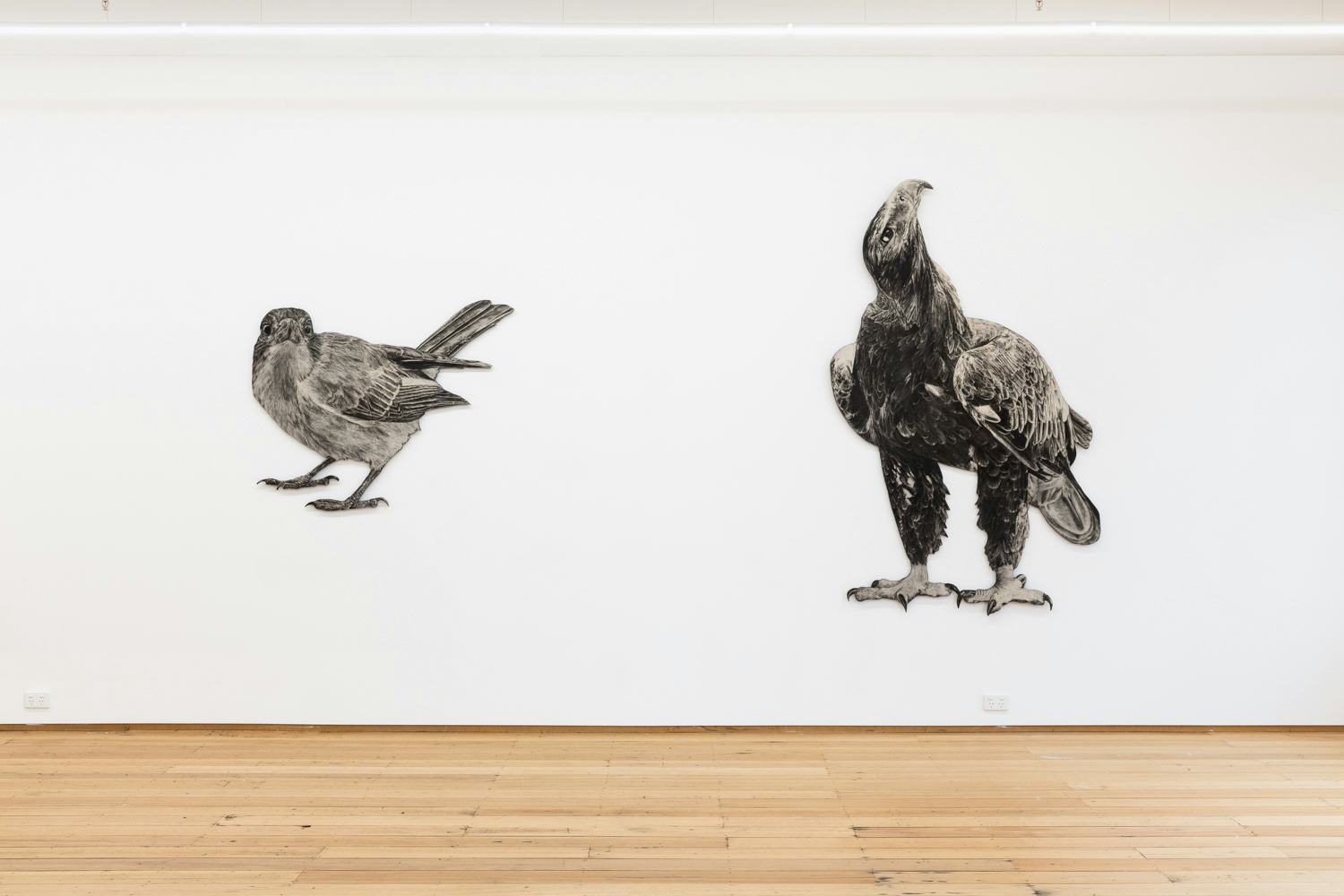
Augury – the diary of birds
Anna Louise Richardson, West Space Offsite
My mum passed away on the 31st of January, 2020. In the year following her death, I had a whole series of strange interactions with wild birds that felt emotionally charged and made me think of her. This is a record of that time. Later on, I discovered that the word which describes this phenomenon is 'Augury'.
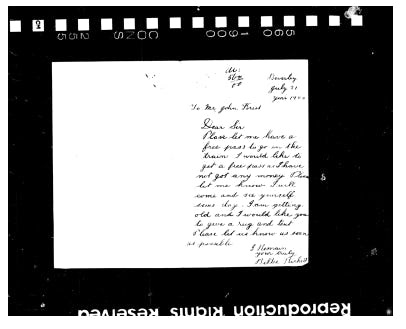
Billie and Forrest
Darryl Kickett, Westerly, December 2019
(Note on access: download the pdf for the special issue 'Ancestors’ Words'. Then scroll to page 18.)
I have to bring under your notice with extreme regret the medical treatment Aboriginals receive in this town. On June the 28th one named Billy Kickett…a fine specimen of health and strength, was taken ill. His companions sent for the doctor to go and see him. The doctor gave them a bottle of mixture instead. The poor fellow grew worse and died yesterday, as it were, like a dog, no medical assistance.
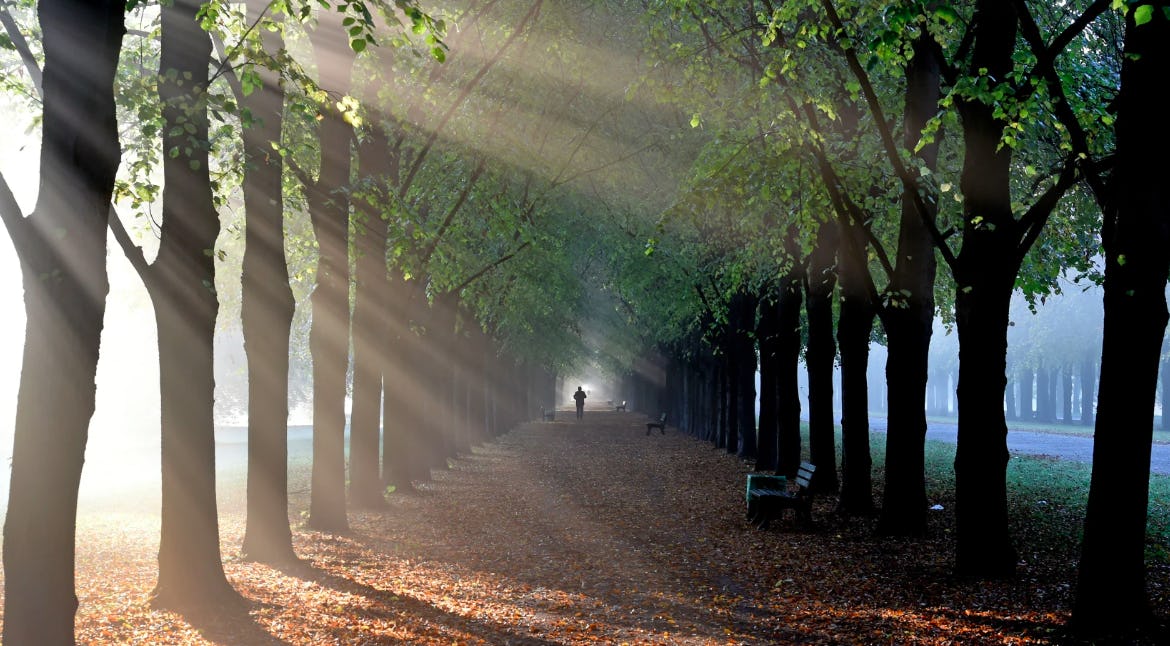
Walking Through the Past into New Motherhood
Jessica Friedmann, Longreads, April 2018
Under Hitler’s fictitious and cynical categorizations of the Jews as a race, bound by eugenic claims that would be 'substantiated' in horror, we weren’t Aryan, we weren’t citizens, we weren’t white. But when the boat carrying my grandparents and my father crossed the equator, and the hemispheres shifted beneath the waves, a transmutation took place, one that rippled like a tide from the banks of Australia’s shores and back toward them again: 'not-white' became, in policy and thought, a less pressing category than 'not-black'...To be European became geographic, not ideological; almost as soon as we stepped upon the shores, we became cosmopolitan and the persecution ceased.
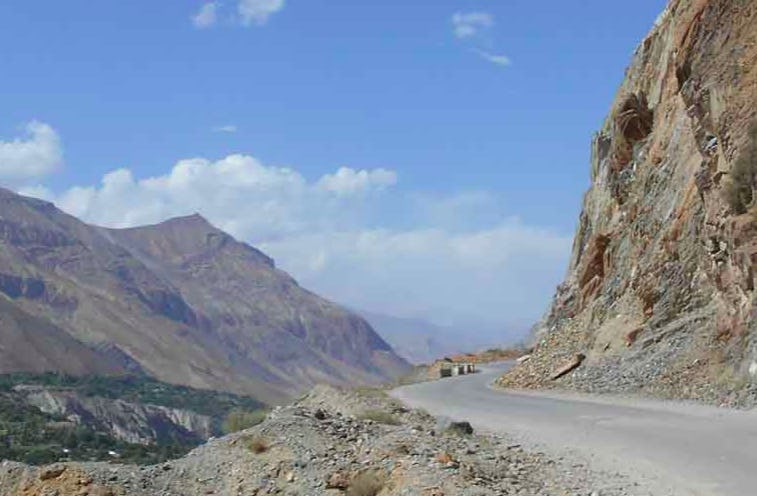
Road to Chitral
Azhar Abidi, Granta, September 2010
To get to Chitral, I had to travel through Peshawar. I stayed there overnight for my bus that left in the morning. I liked the city – the blooming jacarandas, the gaudy rickshaws. When I was a little boy, my parents used to bring me to Peshawar to visit my uncle’s family who lived in the Meteorological Colony, next to what is now the Intercontinental Hotel and what was then a paddock. Years later, a terrorist bomb blew up the hotel and shattered the windows of their house, but in those days there were no terrorist bombs.
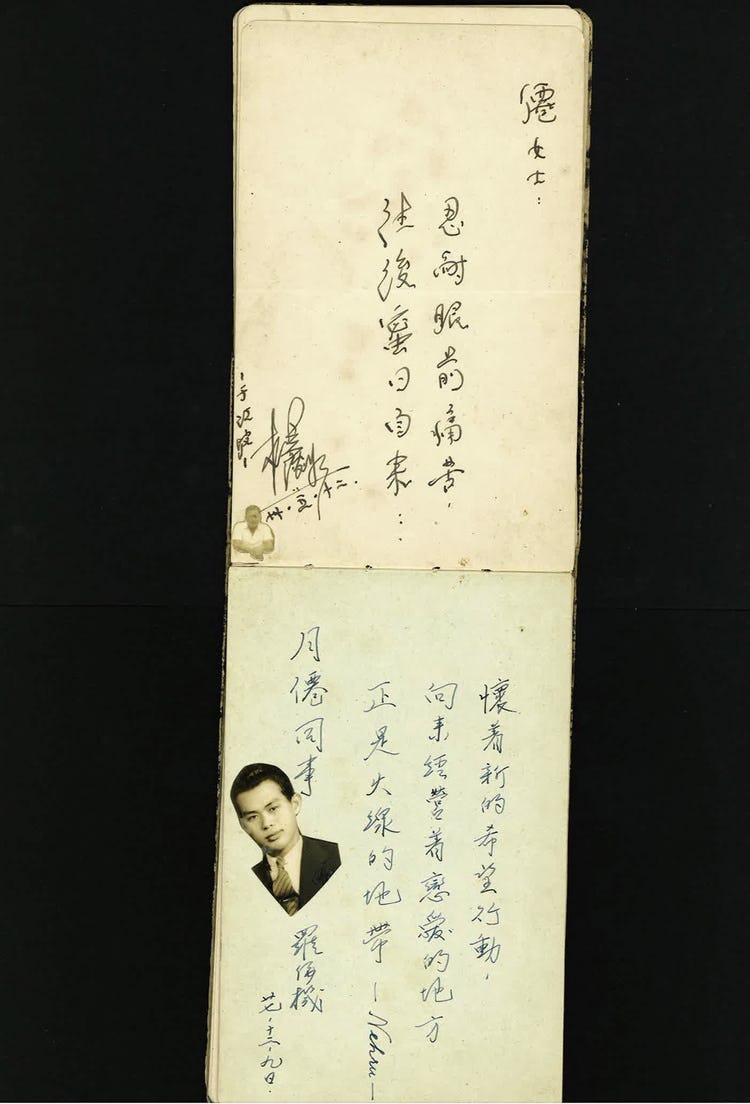
Artefact: My Cantonese Grandmother’s Autograph Book
Miriam Wei Wei Lo, Zou Mat Je, Spring 2021
This autograph book: a metaphor for things I long for – everyone forgiven and forgiving, every story heard, page after page after page.
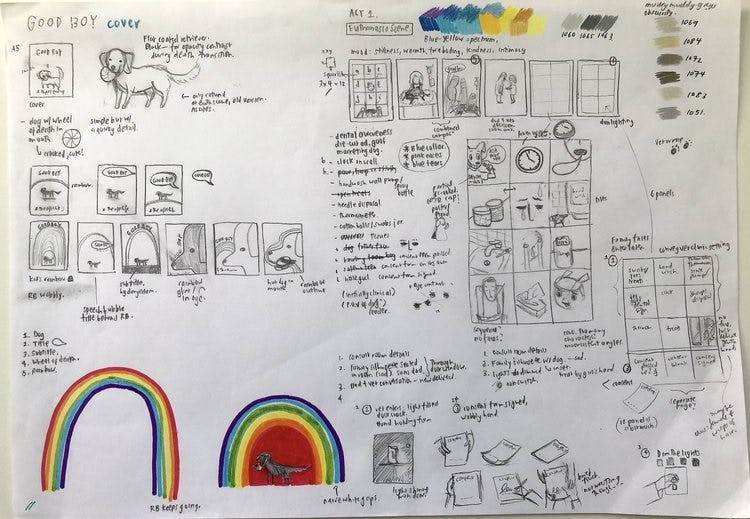
On the Making of Good Boy
Kim Lam, September 2019
Illustrator and comics artist Kim Lam shares in fascinating detail about the making of Good Boy, her zine about the canine after-life.
The Rainbow Bridge is a popular poem oft-referenced in the pet and vet world... I wanted to reimagine the Rainbow Bridge by bringing focus back onto the experience of the afterlife-traversing pet. And to tell a story that offers a non-waiting, soft-closure, less human-centric end-of-life experience.